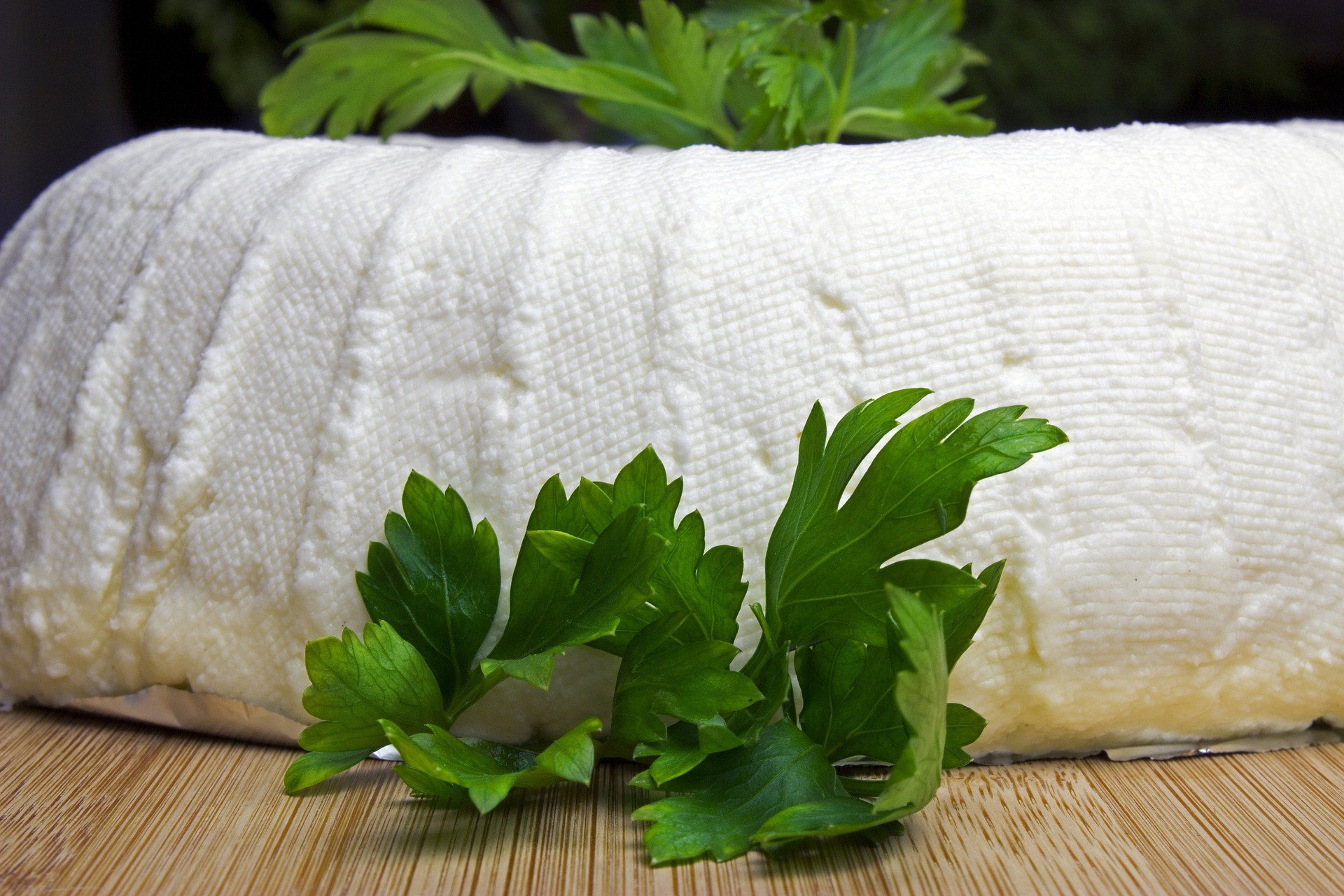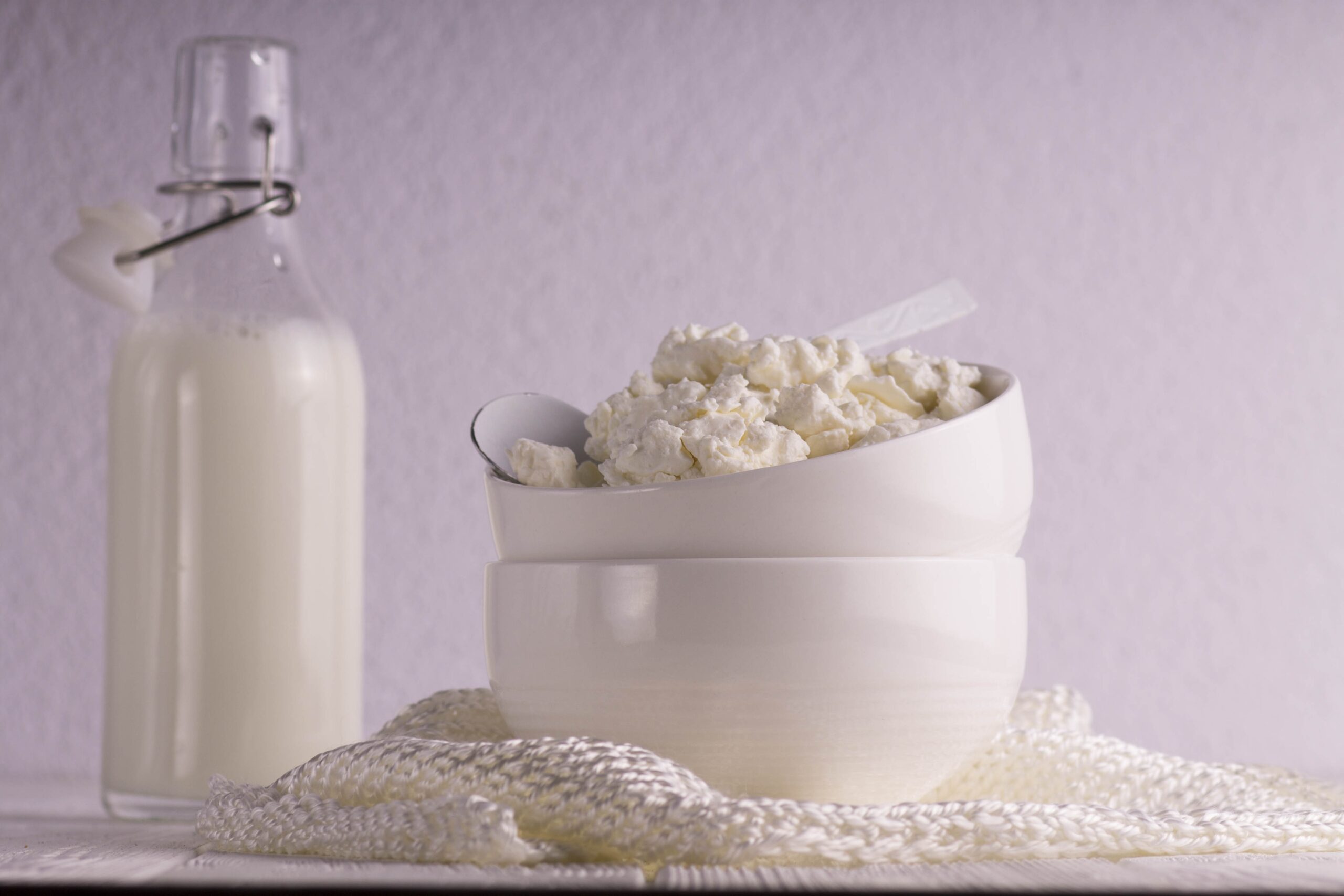Cottage Cheese: A Protein-Rich and Versatile Dairy Delight

Cottage cheese is a popular dairy product known for its creamy texture and mild flavor. It has been a staple in many diets for centuries, offering a range of health benefits and culinary versatility. In this article, we will explore the nutritional value of cottage cheese, its potential health benefits, and creative ways to incorporate it into your meals. Get ready to discover why cottage cheese is not only delicious but also a fantastic addition to a balanced and nutritious diet!
Introduction to Cottage Cheese: A Protein-Rich and Versatile Dairy Delight
Cottage cheese is a fresh cheese made from the curds of cow’s milk. It has a mild and slightly tangy flavor, with a creamy and lumpy texture. Cottage cheese has been enjoyed for centuries and is known for its versatility in both savory and sweet dishes. Whether you’re looking for a protein-rich snack or a versatile ingredient for your recipes, cottage cheese is sure to satisfy your taste buds.
Nutritional Value of Cottage Cheese: A Protein-Rich and Versatile Dairy Delight
Cottage cheese is not only delicious but also a nutrient-dense food. A one-cup (226-gram) serving of cottage cheese typically contains:
– Calories: 206
– Protein: 28 grams
– Fat: 8 grams
– Carbohydrates: 8 grams
– Calcium: 1388 milligrams (106% of the Recommended Daily Intake)
– Phosphorus: 624 milligrams (50% of the RDI)
– Vitamin B12: 1.7 micrograms (71% of the RDI)
– Selenium: 34.3 micrograms (62% of the RDI)
Health Benefits of Cottage Cheese: A Protein-Rich and Versatile Dairy Delight
Excellent Source of Protein
Cottage cheese is renowned for its high protein content. Protein is an essential macronutrient that plays a vital role in building and repairing tissues, supporting immune function, and producing enzymes and hormones. With its rich protein profile, cottage cheese is a valuable addition to a balanced diet, especially for individuals looking to increase their protein intake.
Rich in Essential Nutrients
In addition to protein, cottage cheese provides essential nutrients necessary for overall health. It is a good source of calcium, which is crucial for maintaining strong bones and teeth. Cottage cheese also contains phosphorus, which works in tandem with calcium to promote bone health. Additionally, cottage cheese is rich in vitamin B12, an essential nutrient for energy production and proper nerve function.
Promotes Muscle Growth and Recovery
Protein plays a key role in muscle growth and recovery, making cottage cheese an ideal choice for athletes, fitness enthusiasts, and individuals engaged in regular physical activity. The high-quality protein in cottage cheese provides the necessary amino acids needed for muscle repair and synthesis, supporting muscle growth and recovery after exercise.
Supports Bone Health
Cottage cheese is a calcium-rich food that contributes to maintaining strong and healthy bones. Adequate calcium intake is essential for bone density and preventing conditions like osteoporosis. Including cottage cheese in your diet can help meet your calcium needs and support optimal bone health.
Aids in Weight Management
Cottage cheese can be a valuable addition to a weight management plan. Its high protein content promotes satiety, helping you feel fuller for longer. Additionally, protein requires more energy to digest, known as the thermic effect of food, which can slightly increase calorie expenditure. By including cottage cheese in your meals and snacks, you can support your weight management goals.
Creative Ways to Enjoy Cottage Cheese: A Protein-Rich and Versatile Dairy Delight
Cottage cheese is a versatile ingredient that can be enjoyed in various ways. Here are some creative ways to incorporate cottage cheese into your diet:
Cottage Cheese Breakfast Bowls
Start your day with a nutritious and protein-packed breakfast bowl. Combine cottage cheese with your favorite fruits, such as berries or sliced peaches, and top it with nuts, seeds, and a drizzle of honey or maple syrup. This simple and satisfying bowl provides a balanced combination of protein, fiber, and healthy fats.
Cottage Cheese Salads
Upgrade your salads by adding cottage cheese for an extra protein boost. Toss cottage cheese with mixed greens, cherry tomatoes, cucumbers, and your choice of salad dressing. The creamy texture of cottage cheese adds a delightful contrast to the crisp vegetables.
Cottage Cheese Dips and Spreads
Transform cottage cheese into a creamy dip or spread by blending it with herbs, spices, and a squeeze of lemon juice. This versatile dip can be enjoyed with fresh vegetables, whole-grain crackers, or used as a spread on sandwiches and wraps.
Cottage Cheese Pancakes
Create fluffy and protein-rich pancakes by incorporating cottage cheese into the batter. Blend cottage cheese, eggs, oats, and a touch of vanilla in a blender until smooth. Cook the batter on a griddle or skillet to make delicious and nutritious pancakes. Serve them with your favorite toppings, such as fresh fruit or a drizzle of maple syrup.
Cottage Cheese Desserts
Indulge in guilt-free desserts by using cottage cheese as a base. Blend cottage cheese with a sweetener of your choice and your preferred flavorings, such as cocoa powder, vanilla extract, or fruit puree. This creamy mixture can be enjoyed on its own or used as a topping for waffles, crepes, or whole-grain toast.
Incorporating Cottage Cheese Into Your Diet
Recipes
Here are a few recipes that incorporate cottage cheese:
– Cottage Cheese and Fruit Parfait: Layer cottage cheese, mixed berries, and granola in a glass or jar for a nutritious and filling breakfast or snack.
– Cottage Cheese Stuffed Bell Peppers: Mix cottage cheese with herbs, chopped vegetables, and cooked quinoa. Stuff the mixture into halved bell peppers and bake until tender for a protein-packed and flavorful meal.
– Cottage Cheese and Veggie Wrap: Spread cottage cheese on a whole-grain wrap and add sliced vegetables, such as cucumber, bell peppers, and lettuce. Roll it up for a quick and nutritious lunch option.
Meal Ideas
Here are a few meal ideas that incorporate cottage cheese:
– Protein-Packed Salad: Add a scoop of cottage cheese to a bed of mixed greens, along with grilled chicken, cherry tomatoes, avocado slices, and a drizzle of balsamic vinaigrette for a satisfying and protein-rich salad.
– Cottage Cheese and Veggie Omelette: Whisk eggs with cottage cheese and your favorite vegetables, such as spinach, mushrooms, and bell peppers. Cook into a fluffy omelette for a protein-packed breakfast or brunch option.
– Cottage Cheese and Whole Grain Toast: Spread cottage cheese on whole grain toast and top it with sliced avocado, a sprinkle of sea salt, and a drizzle of olive oil for a simple and nutritious snack or light meal.
Conclusion
Cottage cheese is a versatile and nutrient-rich dairy product that offers numerous health benefits. With its high protein content, essential nutrients, and culinary versatility, cottage cheese makes for a satisfying and nourishing addition to your diet. Whether enjoyed on its own, incorporated into recipes, or used as a creamy topping, cottage cheese provides a creamy and protein-rich option for individuals looking to enhance their meals with a nutritious dairy delight.
FAQs
Q1: Is cottage cheese suitable for individuals with lactose intolerance?
Cottage cheese is relatively low in lactose compared to other dairy products. Some individuals with lactose intolerance may tolerate cottage cheese well, while others may experience discomfort. It is best to start with small amounts and monitor your body’s response.
Q2: Can cottage cheese be included in a weight loss diet?
Cottage cheese can be a valuable addition to a weight loss diet due to its high protein content and satiating effect. Including cottage cheese in meals and snacks can help promote feelings of fullness and support weight management goals.
Q3: Is cottage cheese a good source of calcium?
Yes, cottage cheese is a good source of calcium, which is essential for strong bones and teeth. Incorporating cottage cheese into your diet can help meet your calcium needs and support optimal bone health.
Q4: Can cottage cheese be frozen?
Cottage cheese can be frozen; however, the texture may change once thawed. It is best to consume cottage cheese fresh or refrigerate it for a few days for the best quality.
Q5: Can cottage cheese be used as a substitute for other dairy products in recipes?
Cottage cheese can be a versatile substitute for other dairy products in various recipes. It can be used as a replacement for sour cream, ricotta cheese, or cream cheese in certain dishes. Experiment with cottage cheese in your favorite recipes to discover new and nutritious alternatives.





